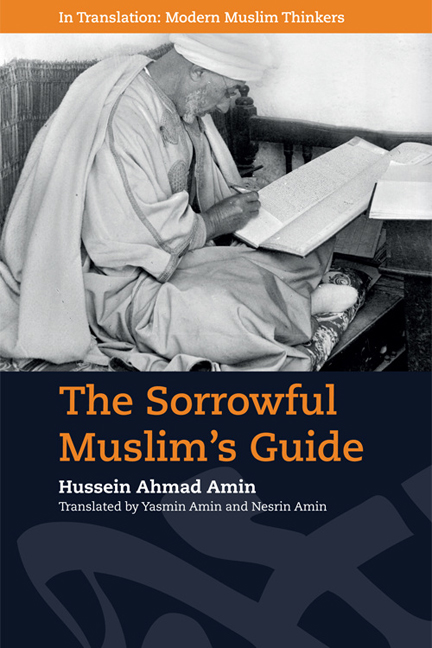1 - The Sorrowful Muslim’s Guide
Published online by Cambridge University Press: 06 May 2021
Summary
It is very easy to beget in a people a contempt of ancient observances; never any man undertook it but he did it; but to establish a better regimen in the stead of that which a man has overthrown, many who have attempted it have foundered.
Michel de Montaigne, Essays, II, 17Muslims always regarded the victories of the armies of Islam – even during the Prophet's life – as one of the strongest proofs of the truth of Prophet Muḥammad's message. Their remarkable political success bolstered their confidence, and filled them with a sense of superiority over followers of other faiths. There was a long and violent confrontation, lasting nearly a thousand years, between the Islamic and Christian worlds. Generally speaking, we can say that Islam emerged victorious, for even if Spain and other territories were lost by the Muslims during that confrontation, vast areas and entire countries were seized from the Christians by the Ottoman armies, who stood threatening at the gates of Vienna in the late seventeenth century.
This ebb was followed by a tide, the effects of which we still suffer from to this very day. The eighteenth and nineteenth centuries were brutally cruel to Islam and Muslims. The Muslim world was subjected to many attacks by European Christians and most nations fell into the clutches of Western colonialisation. These endless defeats at the hands of their religious opponents upset the Muslims: ”… and the people of Bulaq1 returned to the city weeping and wailing, bashing their faces and saying: ‘woe on us, we have become slaves after falling into the hands of the Franks!’” Their self-confidence was shaken, even though for some time they kept their dignity in the face of the colonisers, finding support in their conviction that they are the people of the true religion, and that the coloniser is, in their view, a despicable infidel worthy of contempt.
Al-Jabartī, who condemned the French for their disbelief, their propensity to drink wine, and their uncovered and immodest women, could no longer openly refer to the Franks as cattle as Prince Usama b. Munqidh did during the Crusades.
- Type
- Chapter
- Information
- The Sorrowful Muslim's Guide , pp. 23 - 40Publisher: Edinburgh University PressPrint publication year: 2018



